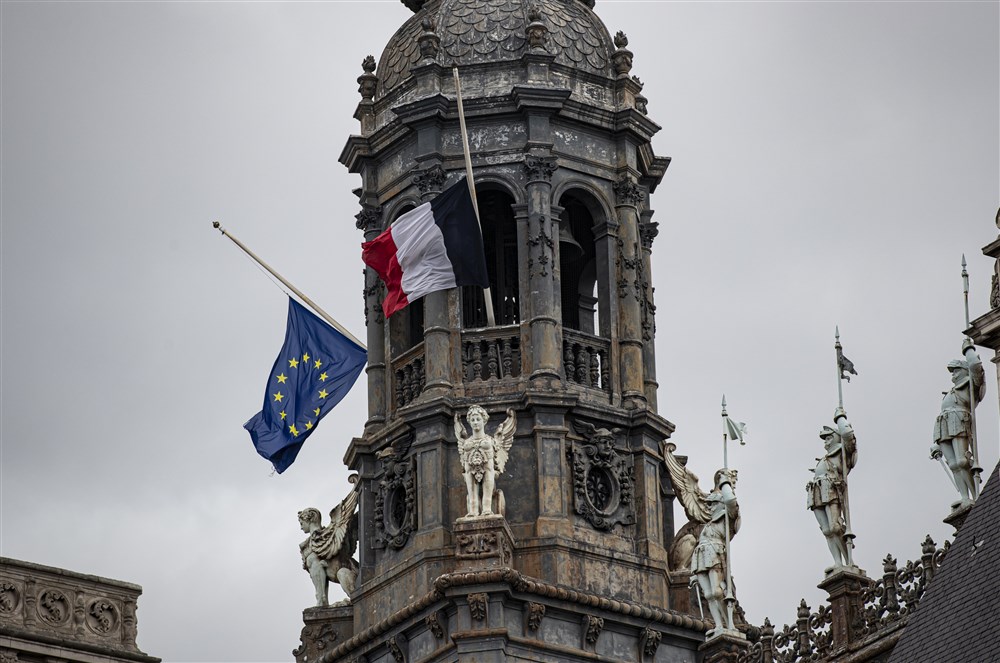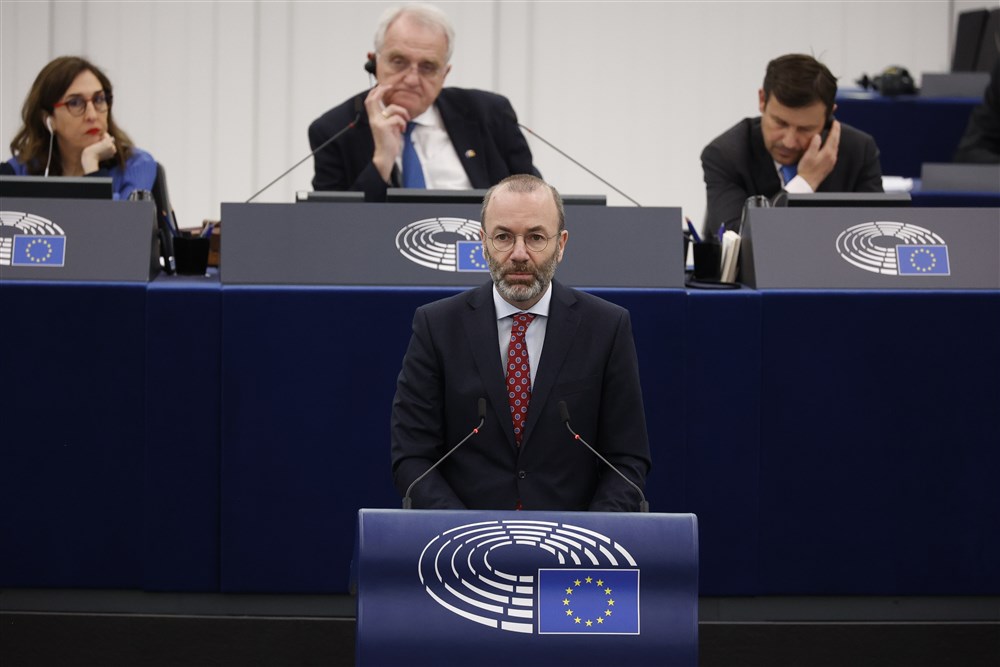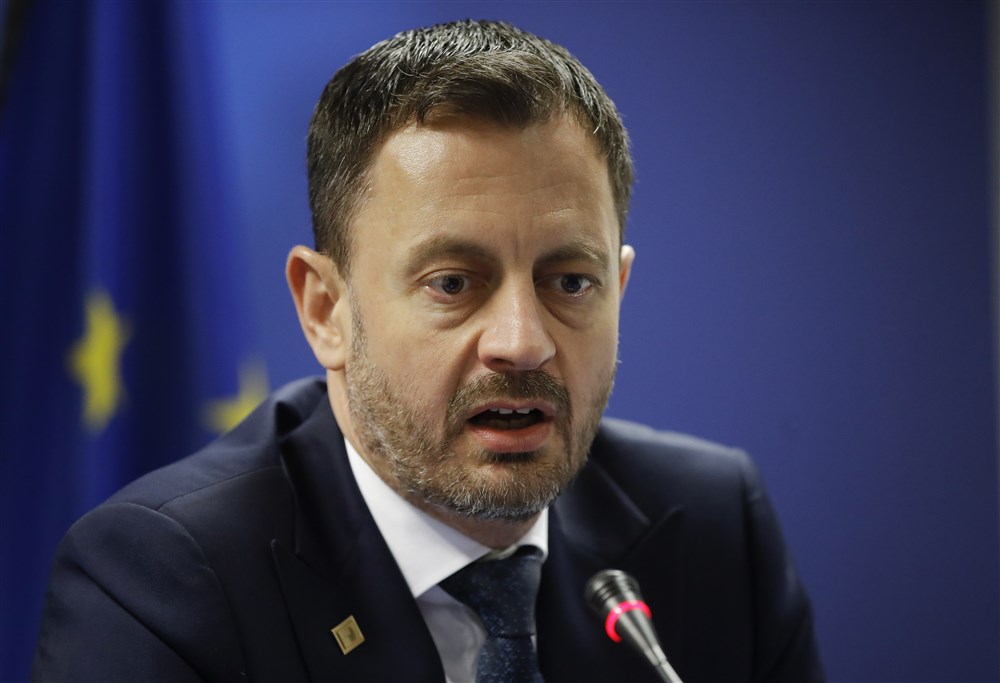Olaf Scholz contradicted French President Emmanuel Macron’s vision of the EU as a potential superpower in a speech in the European Parliament to mark ‘Europe Day’, May 9.
The German Chancellor hit out at those who had “fantasies of great national power” and “imperialistic megalomania”, a reference to both Russia’s expansionism and those who dreamt of a United States of Europe.
“Those who are nostalgic for the dream of a European world power, those who serve national superpower fantasies, are stuck in the past,” Scholz said in his speech. The United States remains Europe’s most important ally, he added.
His words contrasted with those of French President Macron, who in April talked about “strategic autonomy”. Europe should stand firm between the two superpowers, China and the US, and should reduce its dependence on the US dollar, Macron said.
On Russia’s war against Ukraine, Scholz said the EU must now focus on Ukraine’s reconstruction. “A prosperous, democratic, European Ukraine is the clearest rejection of Putin’s imperial, revisionist, and illegal policy.”
He continued: “Let us not be intimidated by such a show of force! Let us remain steadfast in our support of Ukraine – as long as it is necessary!”
On China, Scholz said the trading giant was a “partner, competitor, systemic rival”. Rivalry and competition on China’s part have undoubtedly increased, he said.
The chancellor also referred to EU enlargement and migration. “An honest enlargement policy implements its promises, first and foremost, to the states of the Western Balkans”.
The Chancellor underlined that the accession promises the bloc has made to Ukraine, Moldova, Georgia and the western Balkans were not a matter of “altruism” but rather a question of “credibility and good economic sense”. The EU would otherwise eventually lose its “influence and charisma” he said.
“We opted for a larger Europe,” he continued. “This is about securing a lasting peace in Europe after the watershed moment created by Russia’s war of aggression.”
Speaking about migration and asylum, Scholz said there was a need for more newcomers. “We are united by the goal of better managing and regulating irregular migration – without betraying our values.” In many parts of Europe, workers from third countries are needed, he said. If Europe links legal migration with the demand that countries of origin and transit also take back those who have no right to stay in Europe, “all sides will benefit”.
Europa ist unsere Zukunft! Und Europas Zukunft liegt in unserer Hand. Ich stelle mir eine große, geopolitische und reformierte #EU vor. #ThisisEurope @Europarl_DE 1/5 pic.twitter.com/TpSHkO9sgV
— Bundeskanzler Olaf Scholz (@Bundeskanzler) May 9, 2023





